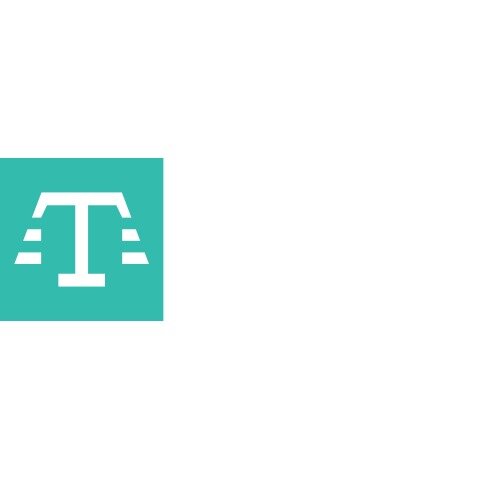Best ADR Mediation & Arbitration Lawyers in Tabriz
Share your needs with us, get contacted by law firms.
Free. Takes 2 min.
List of the best lawyers in Tabriz, Iran
About ADR Mediation & Arbitration Law in Tabriz, Iran
Alternative Dispute Resolution (ADR) mechanisms, including mediation and arbitration, are becoming increasingly important in Tabriz, Iran, as efficient, cost-effective means for resolving disputes outside the formal court system. Mediation involves a neutral third party facilitating negotiations between disputing parties to reach a voluntary agreement, while arbitration entails an arbitrator - or panel - rendering a binding decision after evaluating the evidence and arguments. The approach aligns with local cultural practices, emphasizing dialogue and reconciliation, and is governed by specific laws tailored to encourage and streamline the resolution process.
Why You May Need a Lawyer
Various circumstances may necessitate legal assistance in ADR mediation and arbitration, such as:
- Complex commercial disputes requiring expertise in negotiation and contract law.
- Family or personal disputes where an impartial mediator can help both parties arrive at a reasonable solution.
- Legal disputes involving foreign parties needing compliance with international arbitration standards.
- Disagreements in construction or real estate dealings that could benefit from specialized arbitration knowledge.
- Employment conflicts, where mediation can help maintain relationships while resolving issues.
Legal expertise is particularly beneficial when drafting arbitration agreements, understanding procedural rules, and ensuring that the rights and interests of involved parties are adequately protected throughout the ADR process.
Local Laws Overview
In Tabriz, and Iran at large, arbitration and mediation are supported by both domestic legislation and international conventions to which Iran is a party. The Iranian Civil Procedure Code, particularly the Arbitration Chapter, prescribes how domestic arbitration should be conducted. Iran is also a signatory to the New York Convention on the Recognition and Enforcement of Foreign Arbitral Awards, boosting international confidence in its ADR processes. Local customs and religious principles further influence how mediation is managed, emphasizing non-contentitious resolution frameworks that reflect community values.
Frequently Asked Questions
What is the difference between mediation and arbitration?
Mediation involves a neutral third-party facilitator who helps parties find a mutually agreeable solution, whereas arbitration involves an arbitrator who listens to both sides and makes a binding decision.
Is ADR legally recognized in Iran?
Yes, Iran recognizes and enforces ADR processes, with specific laws outlining how mediation and arbitration should be conducted, ensuring they are valid and legally binding.
Can international disputes be resolved through ADR in Tabriz?
Yes, international disputes can be addressed through ADR in Tabriz, supported by Iran's adherence to international treaties like the New York Convention.
What types of disputes are suitable for ADR?
ADR is suitable for a wide range of disputes, including commercial, family, property, employment, and contractual disagreements.
Are the outcomes of arbitration binding?
Yes, arbitration outcomes are typically binding and enforceable, similar to a court judgment.
How do I initiate mediation or arbitration in Tabriz?
You can initiate the process by contacting a certified ADR practitioner or a legal firm specialized in ADR services to guide you through the necessary steps and procedures.
Can I choose my mediator or arbitrator?
Parties usually have the freedom to agree upon their choice of mediator or arbitrator, often selecting someone with expertise in the relevant field of dispute.
What if an ADR process fails to resolve the dispute?
If ADR does not yield a satisfactory resolution, parties may consider escalating to formal legal proceedings, although this is less common due to the efficiency and high success rate of ADR methods.
Can lawyers represent clients in ADR processes?
Yes, lawyers can represent and advise clients throughout mediation and arbitration procedures to ensure their interests are adequately presented and protected.
Is ADR cost-effective?
ADR is generally more cost-effective than traditional litigation, with quicker resolution times and lower associated costs in many cases.
Additional Resources
For those seeking further information or assistance, consider reaching out to:
- The Iranian Ministry of Justice, for guidelines and support on ADR processes.
- The Arbitration Center of Iran Chamber (ACIC), a leading organization providing arbitration services.
- Local law firms in Tabriz that specialize in ADR and have experienced legal advisors.
- University law faculties in Tabriz that may offer resources or referrals to ADR specialists.
Next Steps
If you need legal assistance in ADR mediation and arbitration, begin by consulting a local lawyer with ADR expertise. They can help evaluate your case, guide you through the processes, and ensure your rights are protected. Prepare relevant documents and information regarding your dispute, and consider your goals for resolution. An initial consultation will provide an overview of your options and help you decide on the best course of action.
Lawzana helps you find the best lawyers and law firms in Tabriz through a curated and pre-screened list of qualified legal professionals. Our platform offers rankings and detailed profiles of attorneys and law firms, allowing you to compare based on practice areas, including ADR Mediation & Arbitration , experience, and client feedback.
Each profile includes a description of the firm's areas of practice, client reviews, team members and partners, year of establishment, spoken languages, office locations, contact information, social media presence, and any published articles or resources. Most firms on our platform speak English and are experienced in both local and international legal matters.
Get a quote from top-rated law firms in Tabriz, Iran — quickly, securely, and without unnecessary hassle.
Disclaimer:
The information provided on this page is for general informational purposes only and does not constitute legal advice. While we strive to ensure the accuracy and relevance of the content, legal information may change over time, and interpretations of the law can vary. You should always consult with a qualified legal professional for advice specific to your situation.
We disclaim all liability for actions taken or not taken based on the content of this page. If you believe any information is incorrect or outdated, please contact us, and we will review and update it where appropriate.








